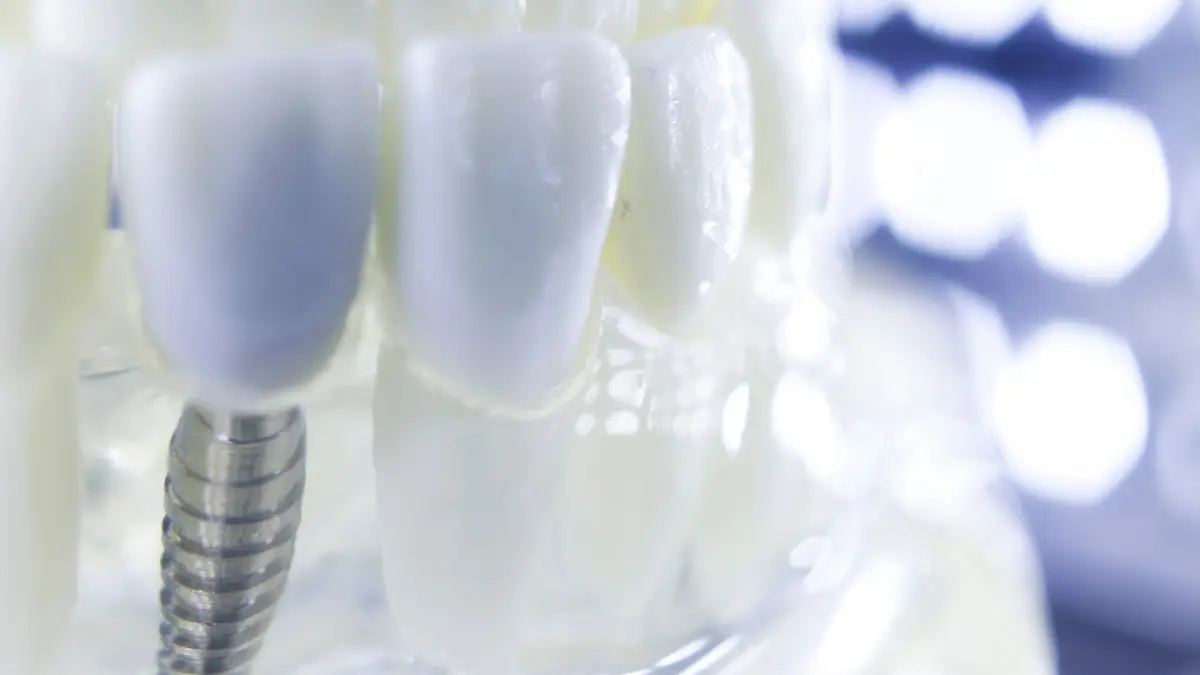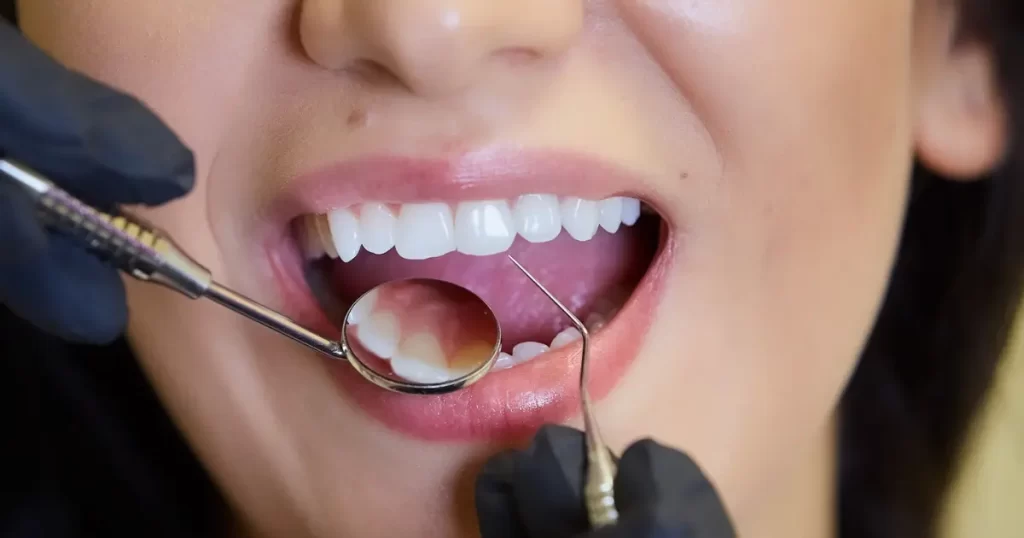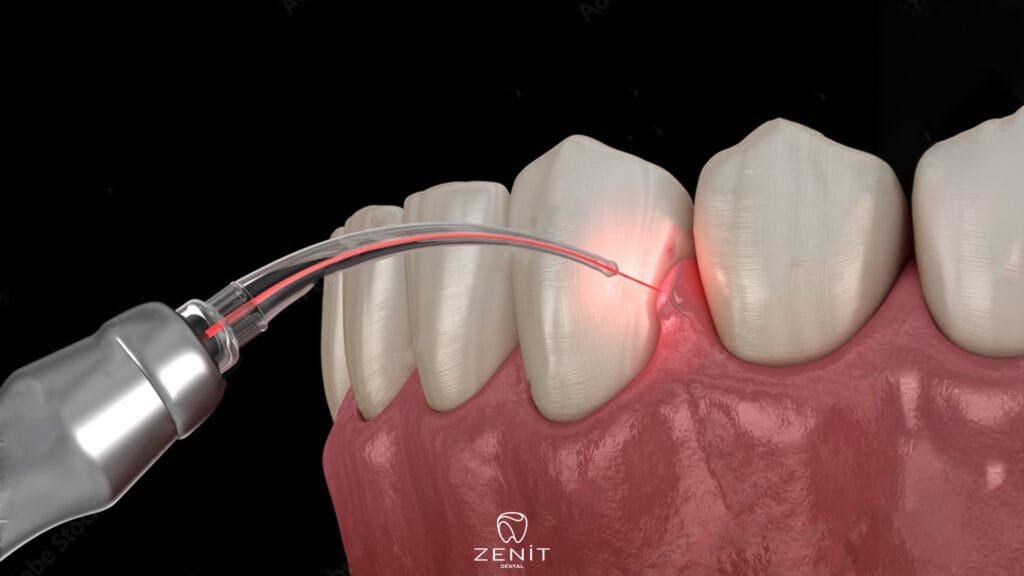Dental implants are artificial tooth roots that are placed in the jawbone to support a replacement tooth or bridge. They are a popular option for people who have lost teeth due to injury, periodontal disease, or other reasons. While there are many materials used to make dental implants, titanium is the most commonly used. In this article, we will discuss what titanium implants are, their benefits, the different types available, and how to maintain them.
What İs Titanium Dental İmplant?
Titanium implants are small screws or posts made of titanium that are inserted into the jawbone. They act as an anchor for a replacement tooth or bridge. The titanium post is placed in the jawbone and allowed to fuse with the bone over time, a process known as osseointegration. Once the implant is fully integrated into the bone, a crown, bridge or denture can be attached to it, providing a permanent replacement for a missing tooth or teeth.
Titanium is a biocompatible material, meaning it is compatible with the human body. This makes it an ideal material for dental implants because it is strong, durable and non-toxic. It is also lightweight and has a low density, which makes it easy to handle during the implantation process.
Benefits Of Titanium Implants

There are several benefits to choosing titanium implants over other materials. These include:
- Biocompatibility: Titanium is biocompatible, which means that it is not rejected by the body’s immune system. This is important because it allows the implant to integrate with the jawbone, which is necessary for stability and longevity.
- Durability: Titanium is a strong and durable material that can withstand the forces of chewing and biting. It is also resistant to corrosion and wear, which means that it can last for many years without deteriorating.
- Osseointegration: Titanium has the unique ability to osseointegrate with bone tissue. This means that the implant will eventually fuse with the jawbone, creating a stable and permanent foundation for the replacement tooth.
- Aesthetic: Titanium implants are often used for front teeth replacement because they provide a natural-looking replacement. They can be color-matched to the surrounding teeth, which makes them virtually indistinguishable from natural teeth.
- Reduced Bone Loss: Dental implants made of titanium can help to prevent bone loss in the jaw. The presence of the implant helps to stimulate the bone tissue, which promotes healthy bone growth and prevents bone resorption.
Types of Titanium Dental Implants
There are several types of titanium implants available. The type of implant that is best for a particular patient will depend on various factors such as the location of the missing tooth, the amount of available bone, and the patient’s overall health. The following are some of the different types of titanium implants:
- Endosteal implants: Endosteal implants are the most commonly used type of dental implant. They are placed directly into the jawbone and are typically shaped like small screws. They can be used to replace one or more missing teeth and can support a variety of prosthetic devices.
- Subperiosteal implants: Subperiosteal implants are placed under the gum but on top of the jawbone. They are used in cases where there is not enough bone to support an endosteal implant.
- Zygomatic implants: Zygomatic implants are used in cases where there is not enough bone in the upper jaw to support an endosteal implant. They are placed in the cheekbone, or zygoma, and provide an alternative solution for upper jaw tooth replacement.
- Immediate load implants: Immediate load implants, also known as same-day implants, are a type of implant that can be placed and loaded with a temporary crown or bridge on the same day. This allows for a shorter treatment time and faster restoration of the missing tooth.
- All-on-4 implants: All-on-4 implants are a type of implant-supported denture that can replace an entire arch of missing teeth. The denture is supported by four strategically placed implants in the jawbone, which provide a secure and stable foundation for the denture.
- Mini implants: Mini implants are smaller in size than traditional implants and are used in cases where there is not enough bone to support a larger implant. They are also used for temporary tooth replacement or as anchors for orthodontic treatment.
Maintenance of Titanium Dental Implants

Proper maintenance of titanium dental implants is essential for their longevity and success. Here are some tips for maintaining your titanium implants:
- Practice good oral hygiene: Regular brushing and flossing are important for maintaining the health of your dental implants. Brush twice a day and floss at least once a day. Use a soft-bristled brush and a non-abrasive toothpaste to avoid damaging the implant or surrounding gum tissue.
- Avoid hard or sticky foods: Hard or sticky foods can damage the implant or the crown attached to it. Avoid biting down on hard objects such as ice, hard candy, or bones. Sticky foods such as gum or caramel can pull on the crown and cause it to become loose.
- Visit your dentist regularly: Regular dental checkups and cleanings are important for maintaining the health of your dental implants. Your dentist can check the implant and surrounding gum tissue for any signs of inflammation or infection. They can also remove any plaque or tartar buildup that can contribute to gum disease.
- Quit smoking: Smoking can interfere with the healing process and increase the risk of implant failure. If you smoke, talk to your dentist or doctor about quitting.
- Protect your implants during sports: If you participate in sports, wear a mouthguard to protect your dental implants from damage.
- Report any problems to your dentist: If you experience any pain, swelling, or loosening of the implant or crown, contact your dentist immediately. These can be signs of infection or implant failure and should be addressed as soon as possible.
In conclusion, titanium implants are a popular and effective solution for replacing missing teeth. They offer several benefits over other materials, including biocompatibility, durability, osseointegration, and aesthetics. There are several types of titanium implants available, and the best type for a particular patient will depend on several factors. Proper maintenance of titanium implants is essential for their longevity and success. By practicing good oral hygiene, avoiding hard or sticky foods, and visiting your dentist regularly, you can help ensure the success of your titanium implant.






